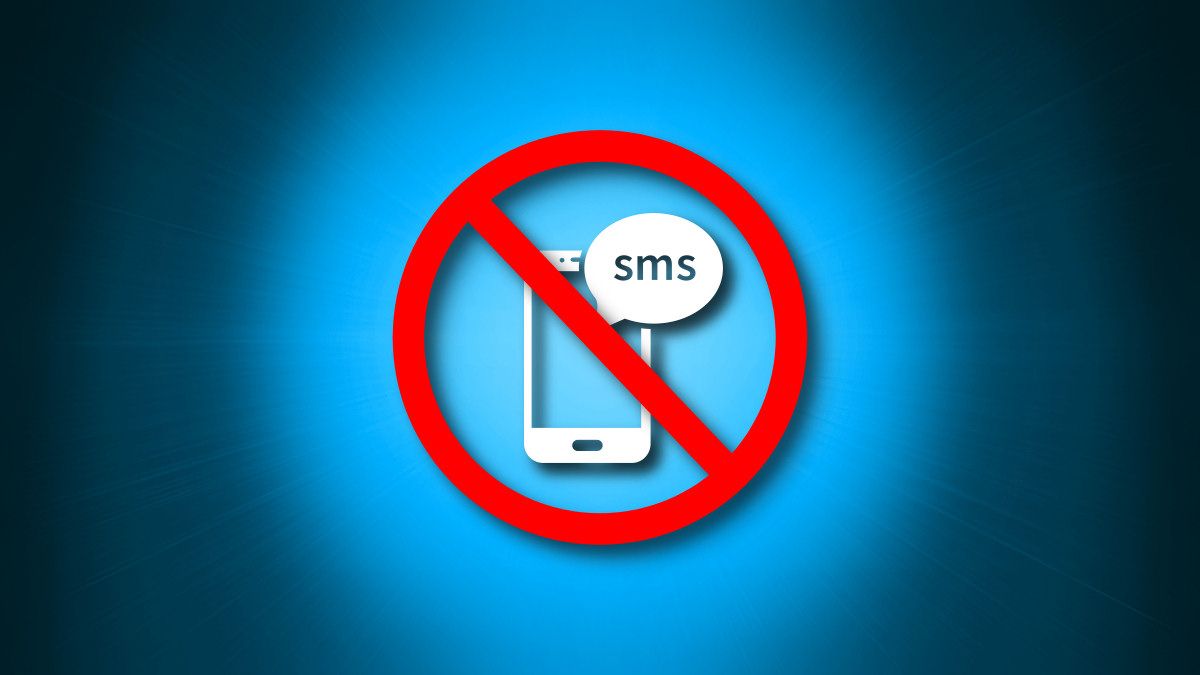Quick Links
The SMS mobile phone texting standard turns 30 this year, and its insecurity and legacy features are holding the world back. Here's why SMS needs to go away as soon as possible.
A Brief Background on SMS
SMS stands for "Short Message Service." It's a mobile phone text messaging standard supported on most mobile phones worldwide. It originated in Europe beginning in 1984, although it didn't make its market debut until 1992. Still, SMS turns 30 this year, and it's far past its sell-by date.
While hundreds of millions of people use SMS every day, in the US we often hear about SMS in the context of Apple and how the Messages app colors SMS message bubbles green, unlike the blue bubbles. But issues with SMS go far deeper than that, as we'll see below.
SMS Is Vulnerable to Surveillance
SMS is not encrypted, and mobile phone carriers can see the contents of every SMS message without needing any special permission to do so. Many times, carriers keep a record of SMS messages for law enforcement purposes, and your SMS text messages can be subject to subpoena in civil cases such as divorce. Also, governments can collect and look through them with ease.
To address this privacy issue, many people use proprietary internet messaging apps such as iMessage or Signal that utilize end-to-end encryption. With these services, the messages can't be intercepted by the companies who run the messages services (in most cases), and the messages go through Wi-Fi or your cellular data plan instead of the SMS network. Relying on SMS keeps everyone less private and secure.
SMS Is Not Secure for 2FA
Two-factor authentication, or "2FA" for short, is a way of verifying your identity using two different verification methods simultaneously. For example, to login to a website, you might enter a password and receive a code through an SMS text message sent to your cell phone number.
While using SMS-based 2FA is better than not using 2FA at all, it has its problems. A major one is that it shifts the burden of your account security to your cell phone carrier. If someone knows your cell number and Social Security number, they can potentially convince an employee of your cell carrier to move your cell number to a new device so they can receive your 2FA codes. It's happened quite a bit in the past.
Another problem with using SMS for 2FA is the same as listed above: SMS can be intercepted by governments and cell carriers, which is a problem in countries with governments that might use the information to target dissidents' online accounts, which has happened in Iran.
Also, there are other privacy issues related to giving out your phone number, such as Facebook using it to help people find you. Instead of using SMS for 2FA, consider using an authentication app instead, such as Authy.
SMS Traps You in Group Chats
SMS doesn't provide any way to leave group chats---or for the person who created the group to remove group members who might be misbehaving. As a result, if you get roped into an SMS group text, you're stuck unless everyone involved in the group stops replying to the group text messages.
Proprietary texting services (such as Apple's iMessage) usually provide ways to leave group chats, but these services aren't industry-wide standards like SMS. Luckily, the new standard RCS (which we'll talk about below) solves this problem by including both the ability to leave group texts and to moderate the chat group's membership. It's a sorely overdue upgrade needed that can only happen if we all ditch SMS.
SMS Costs Extra Money
While many people have unlimited texting plans these days, it's not universal. Cell carriers still make quite a bit of money by charging extra for SMS messages, which is one reason why internet-based alternative texting services are so popular: They help you chat for free, which is a reasonable request in this day and age if you're already paying for a mobile phone and cellular data plan.
SMS Has Been Superseded by RCS
Since 2018, companies like Google have supported a successor standard to SMS called Rich Communication Service, or "RCS" for short. RCS improves upon SMS by allowing higher-resolution images, adding features like read receipts and showing when the other person is typing a reply, and adding the ability to leave group chats and moderate the members of group texts, among other features.
On the downside, RCS is not encrypted by default (although Google has added its own encryption in Messages), and it still transmits through the mobile phone network controlled by carriers, so it is susceptible to interception and storage by carriers, governments, and law enforcement. Still, switching to RCS as a baseline would dramatically improve texting features for hundreds of millions of people around the world.
What Should I Use Instead of SMS?
If you're a cell carrier or cell phone manufacturer, you should fully support RCS, which will allow SMS to finally be retired. Right now, Apple is a particularly prominent holdout, not supporting RCS on the iPhone. Google supports RCS with encryption in its Messages app, which can run on Android.
If you're an individual who wants maximum privacy in your texting communications, we recommend using Signal, which has fairly wide support. Hopefully, in the future, the industry will agree on a universal encrypted text messaging standard that can replace both SMS and RCS. But for now, it's far beyond time to retire SMS. It's been a good run, but times change, and so do we.

